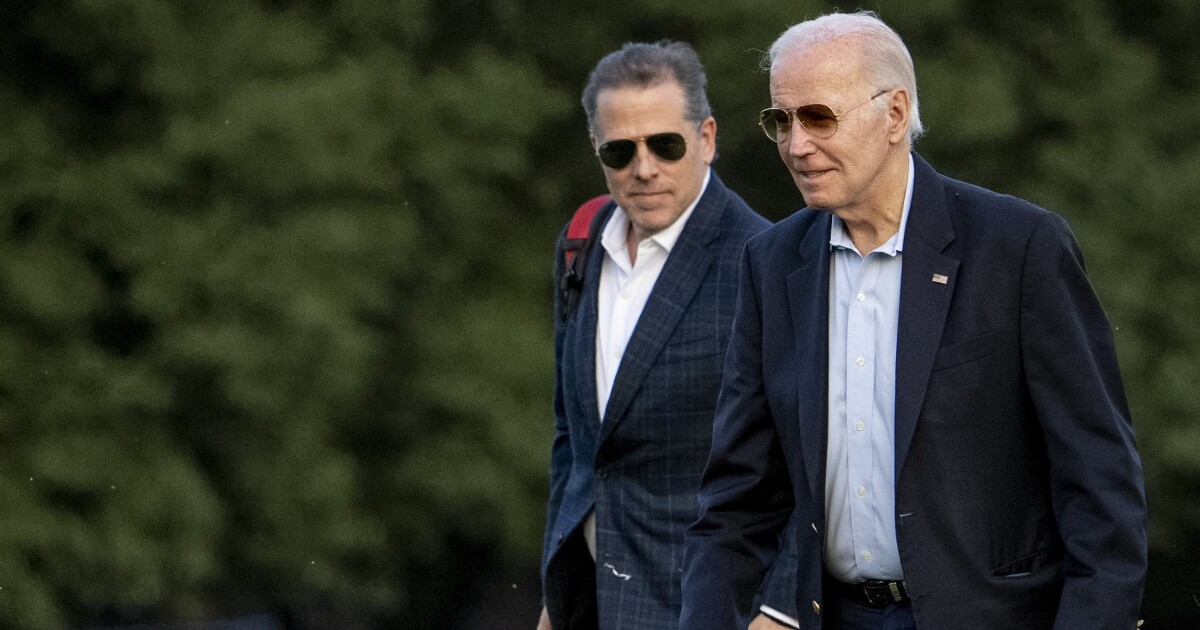

Republicans in Congress are preparing to drill down on allegations that U.S. Attorney David Weiss faced roadblocks in the Hunter Biden investigation from the Justice Department under Attorney General Merrick Garland.
Both Weiss and Garland have denied the claims. But two IRS whistleblowers who spent years investigating Biden told Congress that Weiss, appointed by former President Donald Trump, made several attempts to bring charges against Biden in jurisdictions overseen by U.S. attorneys appointed by his father. The Biden appointees allegedly blocked Weiss.
HUNTER BIDEN INVESTIGATION: IRS WHISTLEBLOWERS DETAIL FIVE YEARS OF DOJ, IRS STONEWALLING
It was one of many serious allegations the whistleblowers leveled against the Justice Department and the IRS, contained in lengthy transcripts of interviews both gave to the House Ways and Means Committee.
Because Garland had previously told Congress under oath that Weiss had not faced any conflicts with other jurisdictions, Republicans have expressed interest in questioning the attorney general further.
And Weiss himself is facing scrutiny from GOP lawmakers, particularly after he struck a plea deal with Biden on narrow charges that conform to what whistleblowers said about his charging ability.
The House Judiciary Committee is expected to call Weiss to testify in the days ahead.
Weiss had affirmed to the Judiciary Committee on June 7 that the Justice Department had allowed him to operate independently and that he enjoyed “ultimate authority” in deciding when and where to charge Biden.
In a letter to Weiss on Thursday, Judiciary Chairman Jim Jordan (R-OH) demanded answers as to why Weiss had responded to the committee about his authority on behalf of Garland, whom the House Judiciary Committee had initially asked for information.
Jordan had also asked Garland, in the initial letter, about alleged retaliation against the whistleblowers who’d spoken to Congress.
One of the whistleblowers who allowed his name to become public, IRS agent Gary Shapley, said Weiss had requested to bring charges in the jurisdictions of both the U.S. attorney for the District of Columbia and the U.S. attorney for the Central District of California because he had evidence that connected Biden to alleged crimes committed in those districts. Shapley said Weiss was denied each time.
That directly contradicted what Garland told the Senate Judiciary Committee on March 1, when Sen. Chuck Grassley (R-IA) asked him about Weiss’s independence.
“The U.S. attorney in Delaware has been advised that he has full authority … to bring cases in other jurisdictions if he feels it’s necessary. And I will assure that if he does, he will be able to do that,” Garland testified in March.
“I’ve promised to ensure that he’s able to carry out his investigation and that he be able to run it. And if he needs to bring in another jurisdiction, he will have full authority to do that,” Garland added.
Republican lawmakers in both the House and Senate are interested in hearing more from the attorney general, who in the past week denied once again that Weiss faced any hurdles.
“This is a clear discrepancy, and one way or the other, we’re going to have to clear it up,” a senior GOP aide told the Washington Examiner. “If that means Weiss is going to appear in person, then that’s what it’s going to take.”
Republicans on the Senate Judiciary Committee are looking for ways to revisit Garland’s testimony from March, a person familiar with the conversations said, including the possibility of inviting him back to address the gaps between his public statements and the whistleblowers’ claims.
Because Democrats control the committee, persuading them to agree to another hearing featuring Garland could prove difficult.
Weiss charged Biden last week with two counts of failing to pay taxes and one criminal count related to his purchase of a gun while using illegal drugs. The plea deal Biden received for the tax charges, as well as a pretrial diversion agreement negotiated for the gun charge, is expected to spare him prison time.
But the whistleblowers alleged a broad array of illegal activity for which the president’s son has not been charged, including alleged unlawful tax write-offs for payments to prostitutes and alleged failures to register foreign business activity.
House Speaker Kevin McCarthy (R-CA) suggested on Sunday that Republicans could consider impeachment proceedings against Garland over the allegations of political interference in the investigation.
“U.S. Attorney David Weiss must provide answers to the House Judiciary Committee,” McCarthy said. “If the whistleblowers’ allegations are true, this will be a significant part of a larger impeachment inquiry into Merrick Garland’s weaponization of DOJ.”
CLICK HERE TO READ MORE FROM THE WASHINGTON EXAMINER
It’s unclear how widely House Republicans might support an impeachment effort that would almost certainly go nowhere in the Senate.
However, the latest developments are the most serious since Biden’s foreign dealings became a major political issue three years ago during his father’s presidential campaign. Republicans have long protested what they saw as preferential treatment from the Justice Department and intelligence community, particularly as associates of Trump faced significant criminal consequences for offenses similar to those of which Biden has been accused, such as tax evasion and illegal foreign lobbying.




